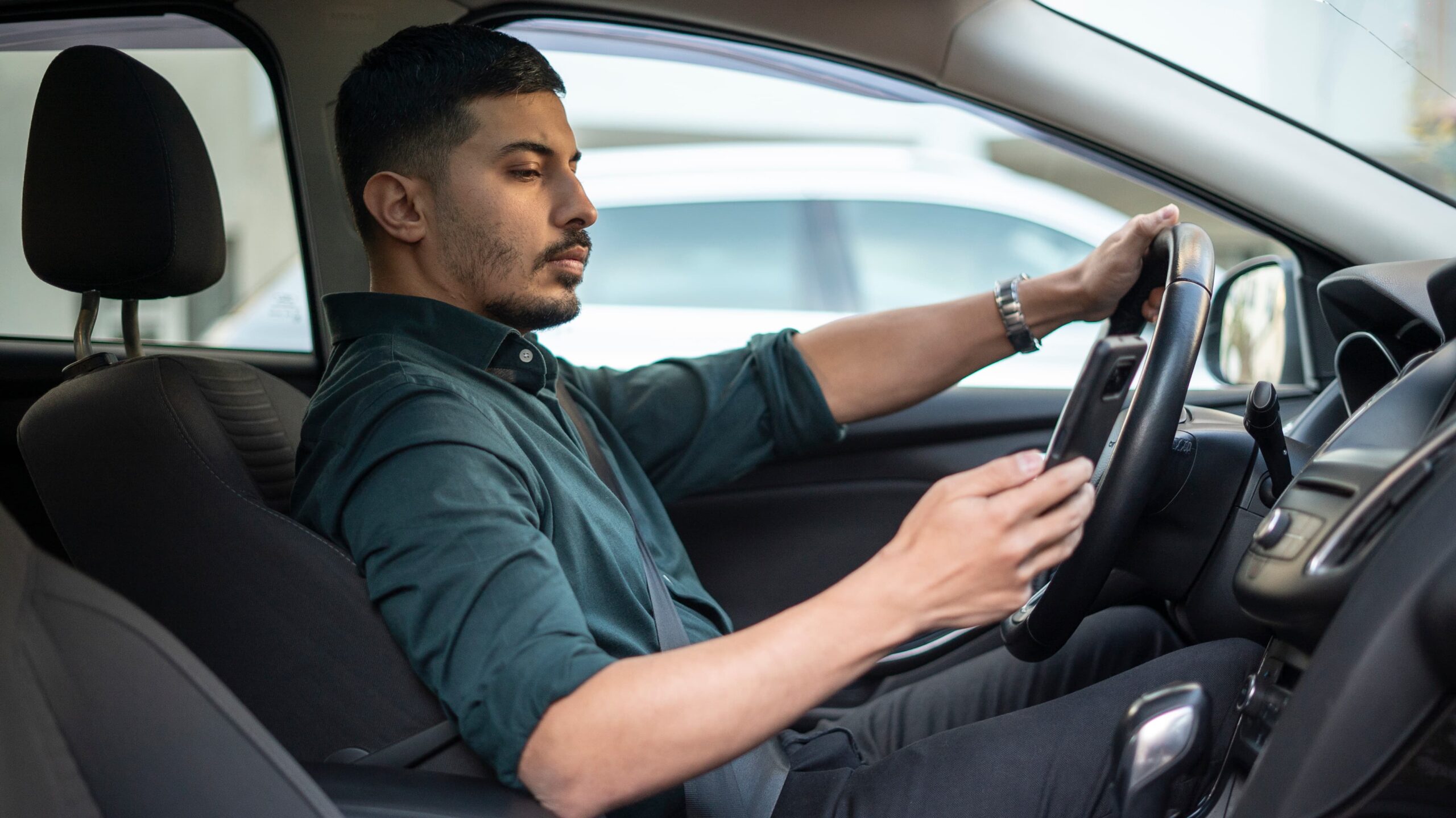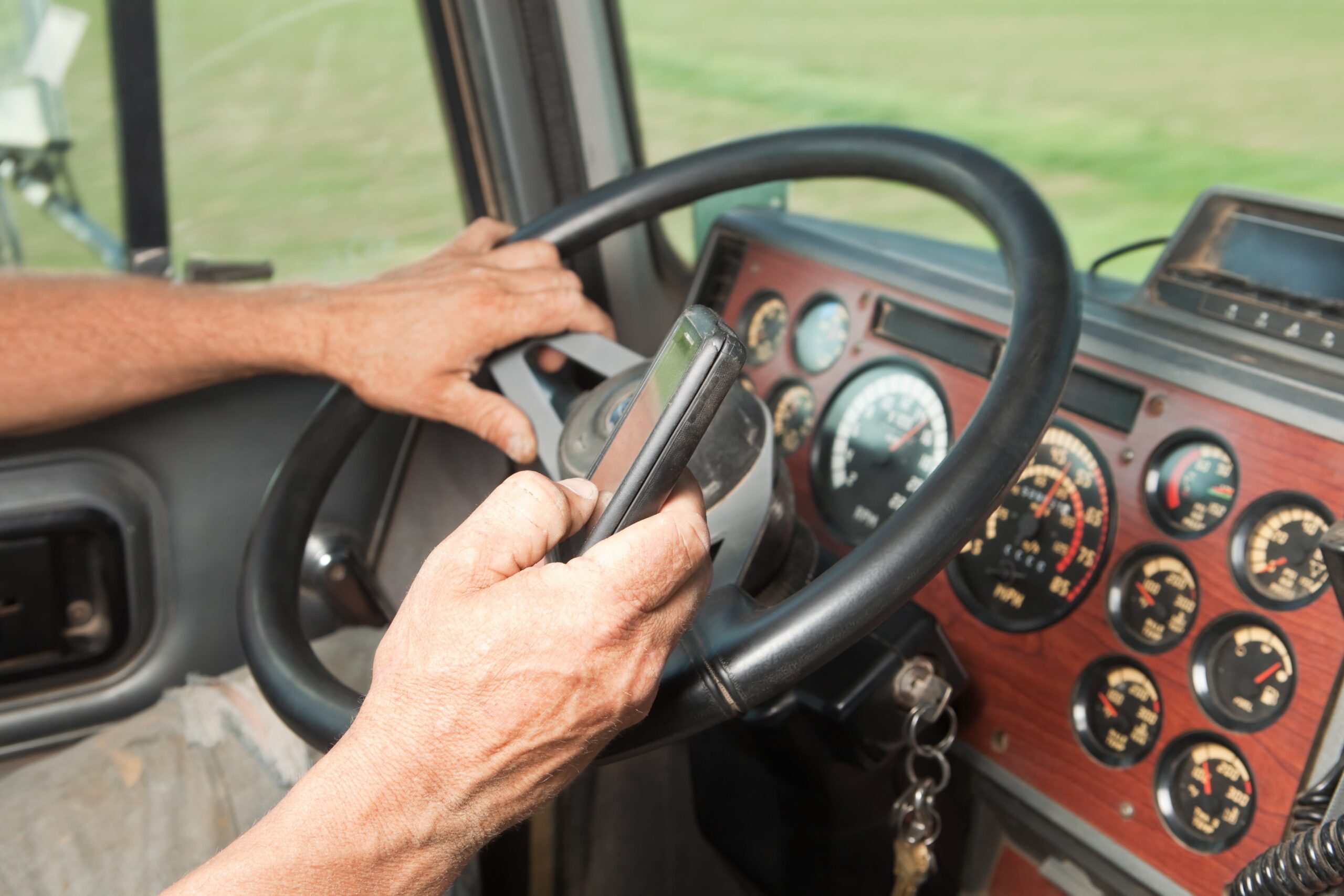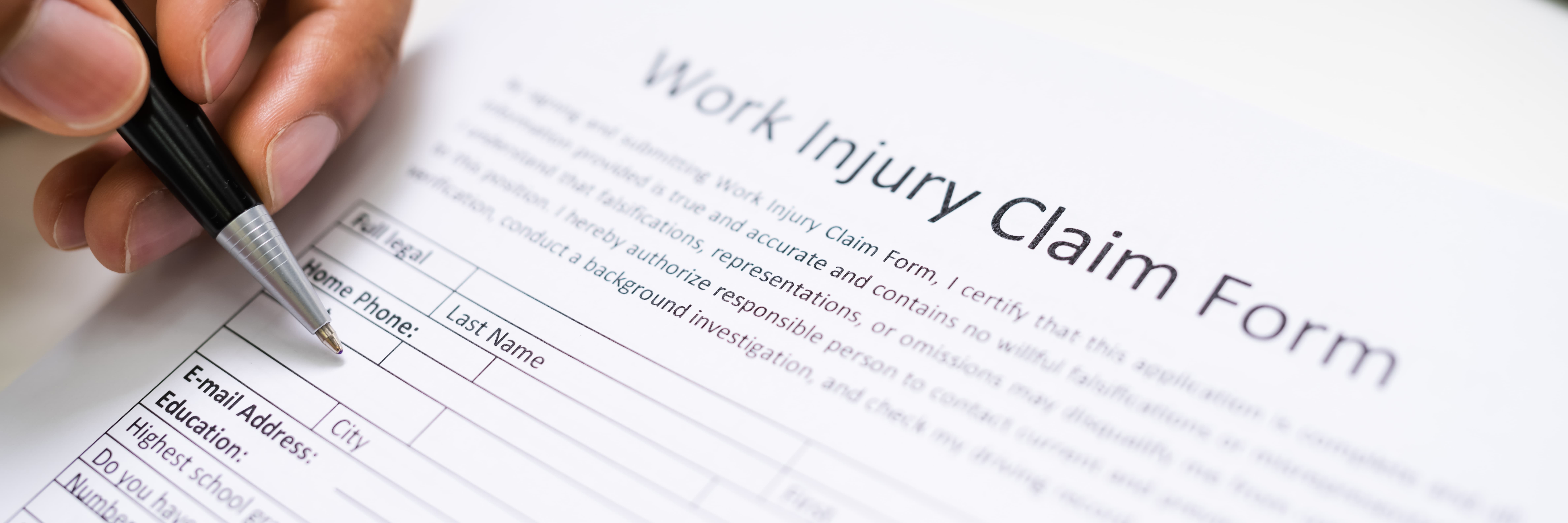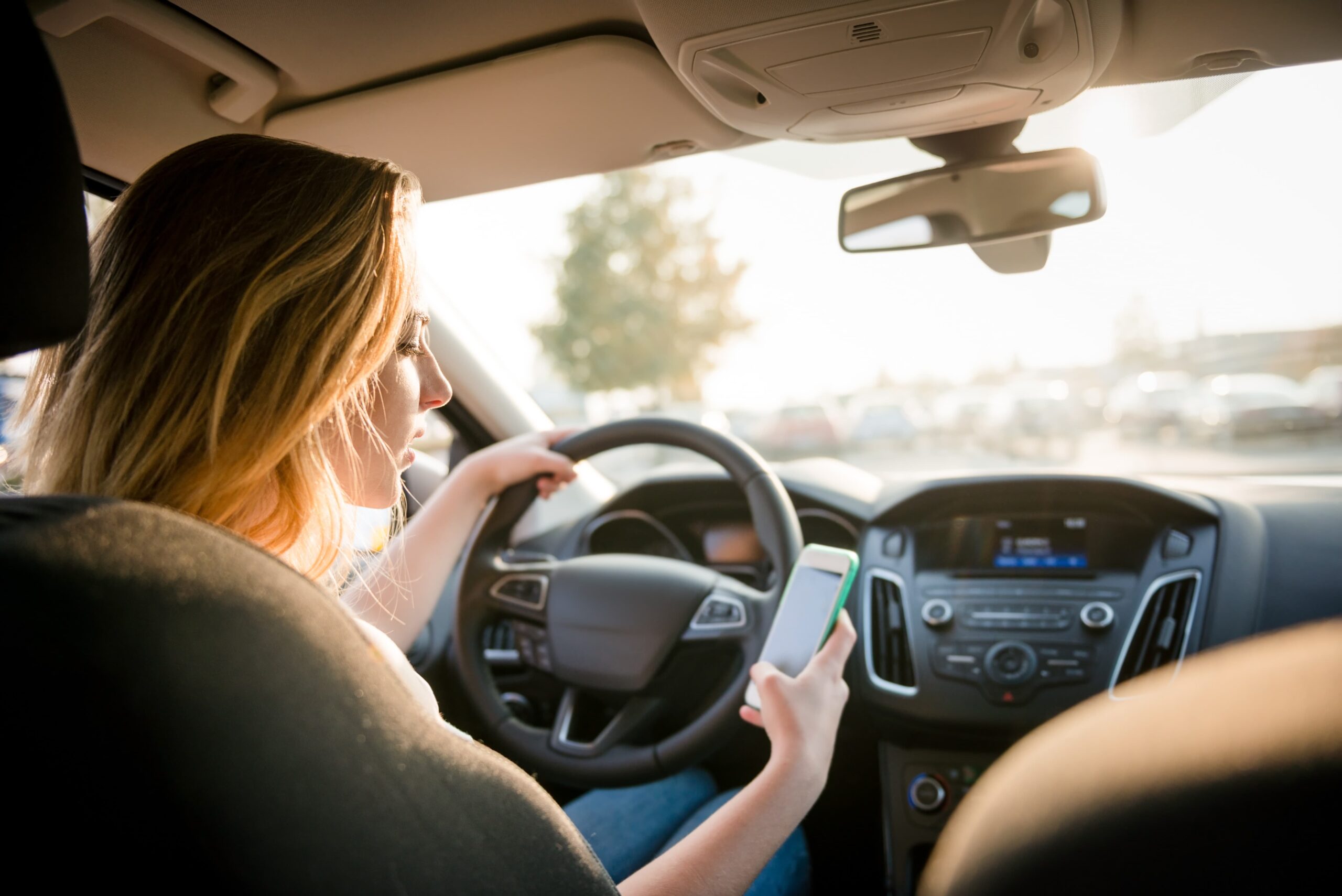Distracted Driving: The Downside of Technology
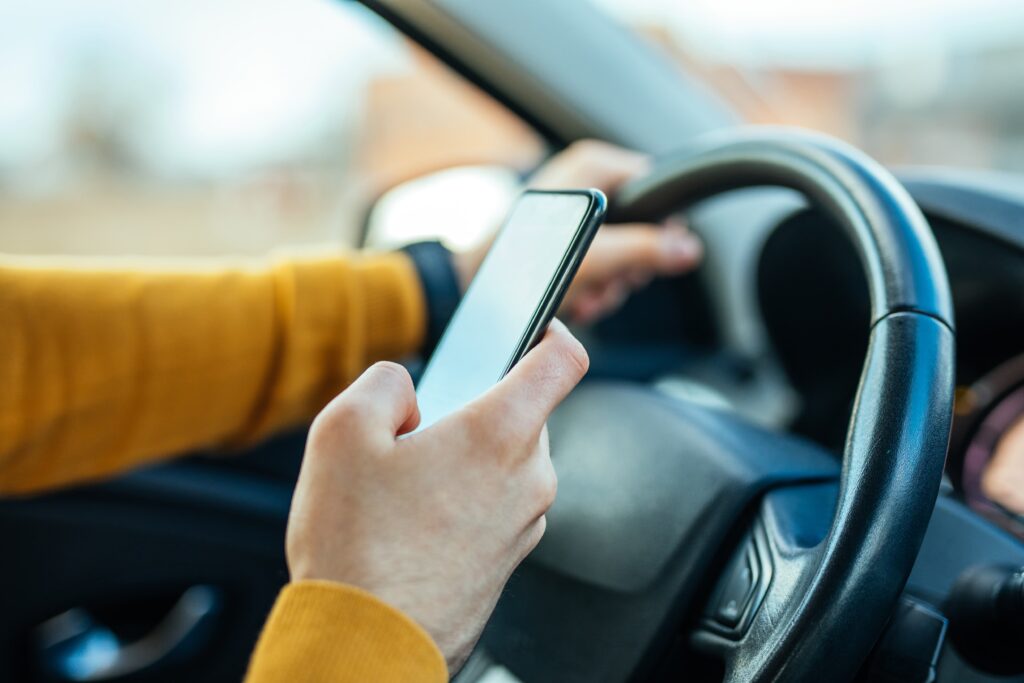
Technology has given us things like live navigation and a range of driver-assist features in modern vehicles. Today, it’s easier than ever before to use devices when we travel. However, with modern technology comes the problem of distracted driving.
The dangers of distracted driving are well known. Unfortunately, distracted driving is a leading cause of motor vehicle accidents and personal injury. Our Denver car accident lawyers explain how technology affects distracted drivers.
Technology and Distracted Driving
Modern technology has created increased temptations for distracted driving. When a person drives, they need to focus on several elements such as speed, lane control, traffic signals and attention to other vehicles on the road. If they try to operate a motor vehicle while they use a phone, for example, it’s hard to divert their attention between two different activities.
A distracted driver car accident victim may need a personal injury law firm to assist them with a claim for compensation. In fact, the victim of a distracted driver may need legal help, just like a driver under the influence may cause a victim to seek help from a drunk driving accident attorney.
Distracted Driving Legal Claims in Colorado
Distracted driving due to technology is illegal in the State of Colorado. There are specific laws that prohibit texting while driving in all contexts. In addition, a minor under the age of 18 cannot talk on the phone while they operate a motor vehicle.
Colorado Law for Misuse of a Wireless Telephone
According to Colorado Revised Statutes 42-4-239¹, the following applied to using the phone while driving:
- It is illegal for minors to talk on the phone while driving in Colorado.
- The law prohibits minors from making phone calls while driving, even hands-free.
- People of any age (adults and minors) may not text and drive.
- Texting includes any manual entering of information into a cell phone. Things like performing internet searches are also prohibited because they require manual data entry.
- For a minor, the penalty is a class A traffic infraction. The offender receives one point on their license and a $50 fine. For a second violation, it is one point on their license and a $100 fine.
When texting and driving cause bodily injury or death, the offense is a class 1 misdemeanor. The offender may receive 4 points on their driver’s license, up to one year in jail and a fine of up to $1,000.
Colorado Law for Careless Driving
Colorado Revised Statutes 42-4-1402(2)(a)² covers the rules and consequences of careless driving. In addition to misuse of a wireless telephone, a host of distracted driving activities may fall under Colorado’s careless driving laws. An individual violates Colorado law 42-4-1402(2)(a) when operating a motor vehicle without due regard for all of the surrounding conditions. Careless driving is a class 2 misdemeanor when no bodily injury results.
What Kind of Lawyer Handles Distracted Driving Injury Cases?
Attorneys that handle distracted driving injury claims are personal injury lawyers. These attorneys represent a person who is injured by a distracted driver and wants to receive financial compensation. Depending on the exact circumstances and how the accident occurs, there may be other names for the kind of attorney involved, including truck accident attorneys, motorcycle accident attorneys or rideshare accident attorneys.
Can I Bring a Legal Claim if I’m Injured by a Distracted Driver?
Yes, you may qualify to bring a legal claim if you’re injured by a distracted driver. Operating a motor vehicle while texting, talking on the phone or even doing other tasks like personal grooming or attending to others in the vehicle may be a form of negligence.
To determine whether someone’s distracted driving amounts to negligence, it’s essential to look at the actions of a reasonable person in the same situation. People are required to use ordinary care on the roads. When distracted driving prevents a person from exercising due care and caution, injured victims may bring a legal claim for financial compensation.
What Do I Need To Do to Prove a Distracted Driving Claim?
In order to prove a distracted driving claim, a victim must show the following:
- The other driver had a duty to drive with caution.
- Driving behaviors showed a lack of reasonable care and caution based on the reasonable person standard of an ordinary person with prudence in the same situation.
- An accident occurred.
- The accident was the result of the other person’s lack of care (proximate cause).
- The victim suffered injuries.
- Damages are sustained by the victim, including physical injury, financial losses, medical bills, missed income from work, and non-economic damages like pain and suffering.
The victim must prove every element of the offense in order to receive compensation. Negligence may take multiple forms. Distracted driving is one example of behavior that may be negligent. Other driving errors like speeding, failing to observe traffic signals and operating under the influence may also amount to negligence and provide the basis of a legal claim.
How Do You Prove Distracted Driving?
When an accident occurs, it’s essential to be aware of the possibility that distracted driving may be a contributing factor. First, the fact that a driving error occurs may itself be proof of distracted driving. For example, if a driver executes a careless lane change, it may be distracted driving that causes the driver to fail to perform a safe lane change.
Other ways to prove distracted driving may be to utilize the discovery process to gather evidence. It may be possible to examine cell phone records for texts and browsing history. Witnesses may provide valuable insights into driver behavior. Your attorneys can work with you to approach witnesses effectively and utilize civil discovery rules to your advantage to gather this information.
Colorado Attorneys for Distracted Driving Claims
Are you hurt because of a distracted driver? Whether or not the other driver receives a ticket or criminal charge, you may qualify to bring a legal claim. Contact our legal team today for your free consultation to review your case.

